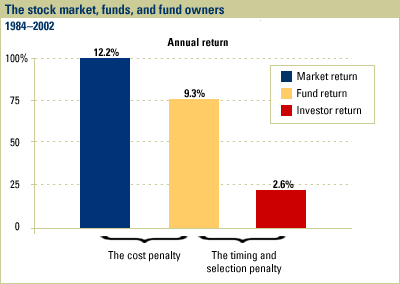Since it is a Friday (following Valentine’s Day), I want to step back from the usual market gyrations to discuss a broader topic: The pursuit of Alpha, where it goes wrong, and the actual cost in Beta.
For those of you unfamiliar with the Wall Street’s Greek nomenclature, a quick (and oversimplified) primer: When we refer to Beta (β), we are referencing a portfolio’s correlation to its benchmark returns, both directionally and in terms of magnitude.
We use a scale of 0-1. Let’s say your benchmark is the S&P500 — it has a β = 1. Something uncorrelated does what it does regardless of what the SPX does, and its Beta is = 0. We can also use negative numbers, so a Beta of minus 1 (-1) does the exact opposite of the benchmark.
Beta measures how closely your investments perform relative to your benchmark. If you were to do nothing else but buy that benchmark index (i.e., S&P500), you will have captured Beta (for these purposes, I am ignoring volatility).
The other Greek letter we want to mention is Alpha (α). Alpha is the risk-adjusted return of active management for any investment. The goal of active management is through a combination of stock/sector selection, market timing, hedging, leverage, etc. is to beat the market. This can be described as generating Alpha.
To oversimplify: Alpha is a measure of out-performance over Beta.
Why bring this up today?
Over the past few months, I have been looking at an inordinate number of portfolios and 401(k) plans that have all done pretty poorly. I am not referring to any one quarter of even year, but rather, over the long haul. There is an inherent selection bias built into this group — well performing portfolios don’t have owners considering switching asset managers. But even accounting for that bias, a hefty increase in the sheer number of reviews leads me to wonder about just how widespread the under-performance is.
One of the things that has become so obvious to me over the past few years is how unsuccessful various players in the markets have been in their pursuit of Alpha. We know that 80% or so of mutual fund managers underperform their benchmarks each year. We have seen Morningstar studies that show of the remaining 20%, factor in fees, and that number drops to 1%.
The overall performance of the highest compensated group of managers, the 2%+20% Hedge Fund community, has been similarly awful, as they have underperformed for a decade or more.
All of which leads me to a number of intriguing questions:
• How much does the pursuit of Alpha cost managers in terms of Beta?
• What is the overall drag on investing returns across the entire investing landscape? (Think of the drag on Individual portfolios, retirement accounts, charities)
• What are the literal costs of active versus passive management?
• What proportion of the finance industry exists to either chase Alpha or capitalize on those who do? Consider this in both percentage and dollar terms.
• Are managers consciously aware of the compromise to Beta they risk in the pursuit of Alpha?
I do not know the answer to these, but exploring questions such as these might lead us to some interesting places.
I’ll update this line of thinking in the near future . . .

Source: Vanguard
Previously:
How Hard is it to Become the Michael Jordan of Trading? (July 14th, 2011)
Another Mediocre Year (Decade) for Hedge Funds (December 27th, 2012)
Is Anyone Any Good at Picking Hedge Fund Managers? (January 23rd, 2012)


What's been said:
Discussions found on the web: